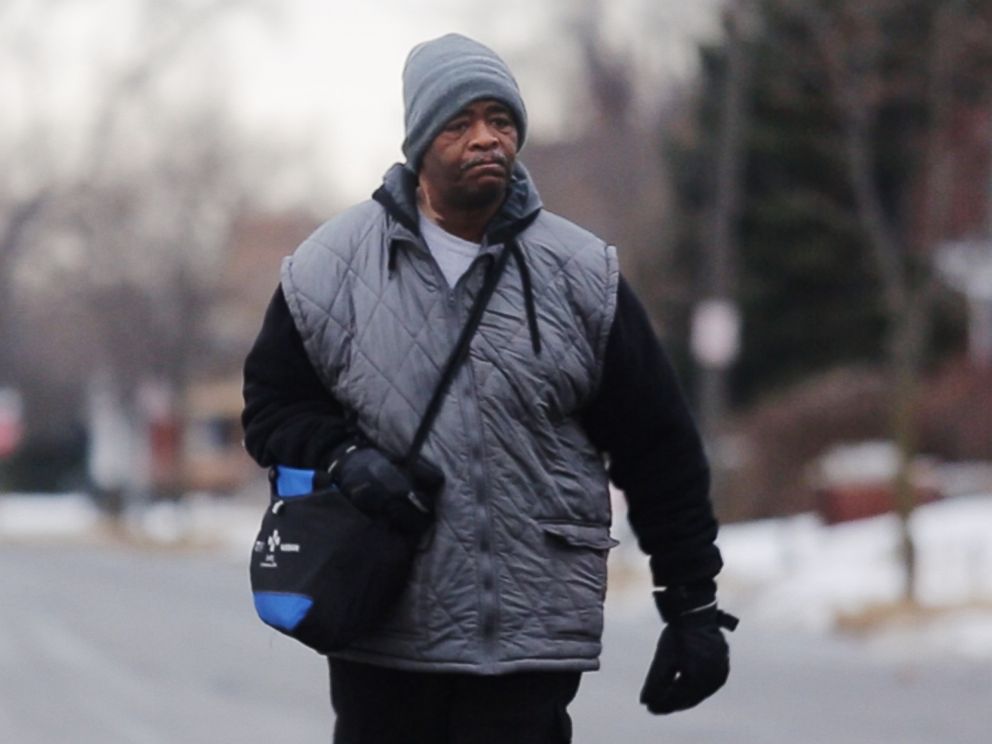 A couple of weeks ago, the story was hard to miss. A factory worker in Detroit had to walk 21 miles a day to get back and forth to work:
A couple of weeks ago, the story was hard to miss. A factory worker in Detroit had to walk 21 miles a day to get back and forth to work:Leaving home in Detroit at 8 a.m., James Robertson doesn't look like an endurance athlete.
Pudgy of form, shod in heavy work boots, Robertson trudges almost haltingly as he starts another workday.
But as he steps out into the cold, Robertson, 56, is steeled for an Olympic-sized commute. Getting to and from his factory job 23 miles away in Rochester Hills, he'll take a bus partway there and partway home. And he'll also walk an astounding 21 miles.
Five days a week. Monday through Friday.Soon, ABC picked up the story. And then, a college kid set up a GoFundMe web site that raised $350,000. A local car dealership donated a new car.
Happy ending, right? Not so much. Robertson was soon receiving threats and had to move out of his apartment for his own safety. Moral of the story: whenever white folks get together to lift a black man out of poverty, his friends and neighbors drag him back down.
But reality, unlike television, is not so simple.
How many James Roberstons are there in Detroit, or in the country for that matter? Tens, maybe hundreds, of thousands. Maybe millions. How many of them could use a new car, a break on their mortgage, a hand with a doctor's bill? Yet how few will catch the eye of a rich benefactor or a story-hungry media?
I don't begrudge Robertson's good fortune. Not at all. Nor do I fail to comprehend the rage and frustration that his neighbors might feel. One man, who like so many others is trapped in a low-paying job (Robertson makes $10.55 an hour). gets lucky. The nation stops to look and commiserate for a few days. Maybe kick in a few bucks. Then the nation's attention and largesse move elsewhere. The money stream goes dry again. And only one man, as ordinary as every other, benefits.
When I was a kid, I remember my grandmother remarking (somewhat out of the blue) that "Canadians are so jealous." I heard that as a put-down of her own people, and mine, and was uncomfortable. But I came to understand how people in marginal societies feel. We French-Canadians came from a nation of failing farms. The soil yielded less each year. Resources were few and had to be shared. Charity was not something one did once in a while, but was a daily necessity. All struggled. But if one family suddenly became comfortable, eyebrows were raised. Where did the extra money come from? Do they think they're better than us now? Why can't some of their good fortune come my way? The cocktail of resentment, bitterness and envy becomes toxic. It was less that we were an especially jealous people (sorry, Memère!) but that we came from stock that didn't get special treatment -- unless something shady was going on.
So too with James Robertson's neighbors in Detroit. One man's good fortune simply shines a spotlight on the dark fortunes of the rest. Neither good fortune, nor ill, is deserved or earned. But a beleaguered people's dark emotions rise, to be trained on the closest available target, poor James Robertson.
Meanwhile, we in more affluent parts of America are satisfied. We have done our bit -- sending $10 or $20 to help a single individual. The TV stories were heartwarming and had a happy ending. Even the jealousy of Roberston's community cheers us: our preconceptions of the depravity of the poor is confirmed once again.
Yet isn't the real scandal that Detroit's factories continue to pay their employees scandalously low wages -- so low that they can't afford transportation to and from work? Isn't it tragic that millions live in shoddy homes and send their kids to underfunded schools? But the time for such questions is over. The television lights have moved on. And the hearts of the wealthy remain as chilly as a winter roadside in Detroit.




